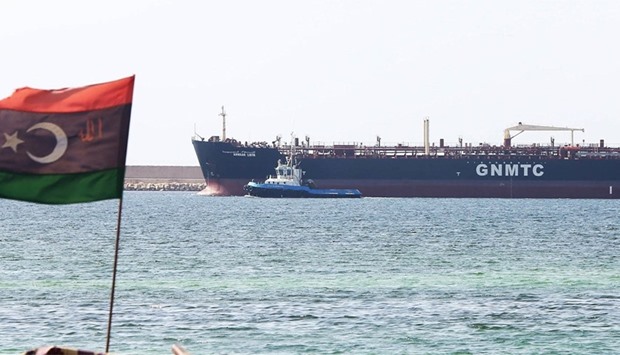The fighting between the two sides -- the first since the unity government started work in the capital Tripoli in March -- was the latest escalation of the chaos that has gripped Libya since the overthrow of Moamer Kadhafi in 2011.
A bombing campaign by Britain and France was instrumental in the veteran dictator's ouster, and a key British parliamentary committee on Wednesday joined mounting criticism of the two governments for their failure to shape its aftermath.
This week's seizure of all four export terminals in Libya's so-called oil crescent was a major blow to the Government of National Accord (GNA), which is almost entirely dependent on oil revenues for its income.
UN envoy Martin Kobler, who had called repeatedly for a halt to the offensive led by controversial military strongman Khalifa Haftar, was to brief the Security Council on the crisis later on Wednesday.
The unity government is the centrepiece of UN efforts to restore stability to Libya and it now faces an even tougher battle to assert its authority over the rival administration in the east.
GNA head Fayez al-Sarraj said that Libya was at a ‘turning point’ after the assault on the oil ports with its future as a united nation in serious question.
‘I call on all sides to halt provocative actions and sit down urgently at the same table to discuss a mechanism that would enable us to get out of this crisis and put a stop to the conflict,’ he said.
‘I am not prepared to rule one part of Libya nor to lead a war against another part.’
The capture of the oil crescent means that the rival administration now controls virtually all of the eastern Cyrenaica region.
The writ of Sarraj's government is confined to the western Tripolitania region where its forces have been battling jihadists of the Islamic State group in the coastal city of Sirte for months.
The Petroleum Facilities Guard, which had been responsible for the defence of the oil ports, has played a prominent role in the fighting against IS, and Haftar's forces took advantage of the absence of many of its members to seize all four ports in just three days.
Haftar, 73, who sees himself as Libya's saviour after battling jihadists out of most of the main eastern city of Benghazi, is the most powerful backer of the eastern administration.
- 'Only game in town' -
Western governments have voiced serious concern that Libya's deepening division can only play into the hands of the jihadists and their efforts to establish a base just across the Mediterranean from Europe.
The United States and its European allies issued a joint statement condemning Haftar's offensive and calling for the return of the oil ports to unity government control.
US President Barack Obama has voiced disappointment that Britain and France did not do more to prevent the collapse of central authority in Libya after their intervention in 2011.
‘I had more faith in the Europeans, given Libya's proximity, being invested in the follow-up,’ he said in an interview with Atlantic magazine published in March.
That criticism was echoed in the report published by the British parliament's foreign affairs committee on Wednesday, which found that the NATO-backed intervention championed by London and Paris was ‘not underpinned by a strategy to support and shape post-Kadhafi Libya.’
The committee singled out then-prime minister David Cameron, saying he was ‘ultimately responsible for the failure to develop a coherent Libya strategy’.
Moving forward, the committee said it was vital that the international community support Sarraj's unity government.
‘The GNA is the only game in town,’ it said.
‘If it fails, the danger is that Libya will descend into a full-scale civil war to control territory and oil resources.’

